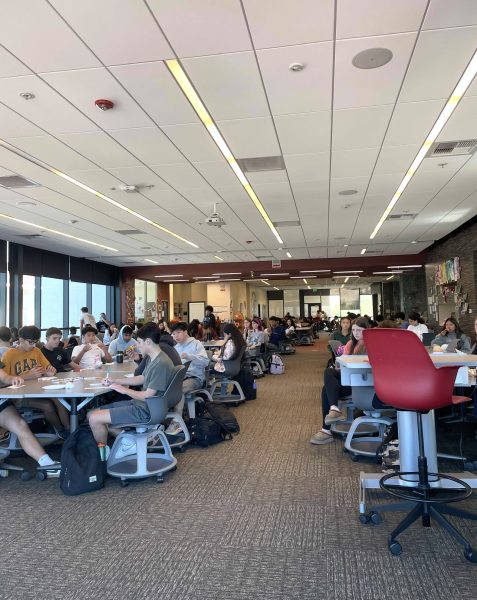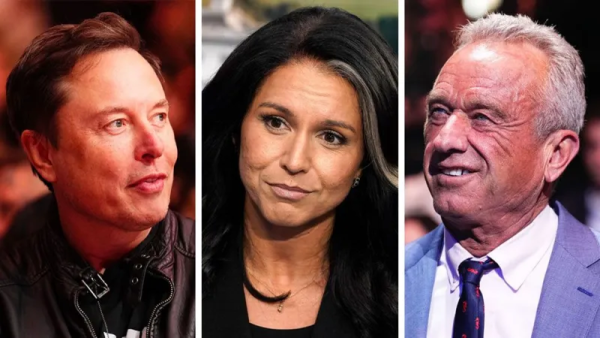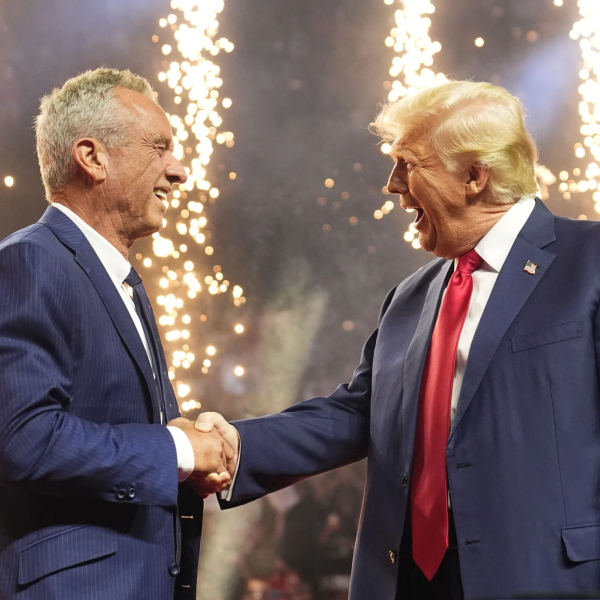The Implications of Deplatforming a President
Social media has taken over the world. Social media is one of the most powerful communication tools of the 21st century, but there are only a handful of companies can control the conversation.
Free speech has always been in the spotlight of American legal discourse, and now with the internet, this conversation is more relevant than ever. Recently, former President Donald Trump was deplatformed from all major social media sites in an unprecedented move by tech giants. These actions have far-reaching implications, and we must be clear, consistent, and cautious with our response.
On Jan. 8, Trump tweeted “The 75,000,000 great American Patriots who voted for me, AMERICA FIRST, and MAKE AMERICA GREAT AGAIN, will have a GIANT VOICE long into the future. They will not be disrespected or treated unfairly in any way, shape or form!!!” and “To all of those who have asked, I will not be going to the Inauguration on January 20th.”
Following these tweets, Twitter permanently suspended Trump, citing that he violated Twitter’s Glorification of Violence policy. Twitter said that his statements served as “further confirmation that the election was not legitimate” and that former President Trump did not plan to facilitate an “orderly transition.” Following Trump’s Twitter suspension, he was also removed from Facebook, Instagram, YouTube, Reddit, and almost every other major social media site.
However, many in the international community had mixed feelings towards Trump’s various bans and suspensions. Angela Merkel, the Chancellor of Germany and de facto leader of the European Union, called Twitter’s suspension of Trump’s account “problematic” and a violation of our “fundamental right to free speech.” Other prominent world figures, such as Mexican President Andres Manuel Lopez Obrador and Russian opposition leader Alexei Nalvany have also voiced concerns.
In the past, America has been the world’s leader of free speech, and the Supreme Court of the United States (SCOTUS) has been a famous defender and interpreter of the First Amendment of the U.S. Constitution. For this reason, the U.S. must tread carefully in these unprecedented times to make sure it remains a symbol of free speech in the future.
Legally, the First Amendment is a nuanced topic, but in the case of inflammatory speech, the SCOTUS has outlined a very formal way to judge its constitutionality. In the 1969 landmark case Brandenburg v. Ohio, the SCOTUS set a two-pronged test to determine the constitutionality of a statement that allegedly incited violence: (1) speech can be restricted if it is “directed at inciting or producing imminent lawless action” and (2) if it is “likely to incite or produce such action.” Brandenburg was accused of breaking a law that made advocating “crime, sabotage, violence, or unlawful methods of terrorism” illegal. The SCOTUS declared this law overly broad and in violation of the constitution, voting in favor of Brandenburg.
On Jan. 13, House Democrats along with 10 Republicans, charged the former President with “incitement of insurrection” after he gave a rousing speech hours before rioters stormed the U.S. Capitol building. The House Trial Brief stated that Trump’s actions were a “direct assault on core First Amendment principles,” warranting an impeachable offense. However, using the framework outlined by the SCOTUS, some Republicans and Trump supporters would argue that Trump’s words were completely constitutional and did not directly incite any violence. Trump’s lawyers have also said that “the 45th President exercised his First Amendment right under the Constitution to express his belief that the election results were suspect.” No matter the reasoning, the sustained support of the previous president and the large Congressional opposition to impeachment are clear evidence of America’s continued divisions.
While the situation remains to be settled in Washington, Silicon Valley’s social media giants unilaterally deplatformed Trump in one fell swoop. In addition, Parler, a social media site used by many on the right-wing, was pulled from Amazon Web Services, forcing it offline.
While Section 230 of the Communication Decency Act of 1996 allows online platforms—like Twitter and Facebook—to restrict content that is believed to be objectionable, even if it is constitutionally protected, the immense power of a few tech giants to control the American conversation sets a dangerous precedent with incredible consequences.
Proponents of Trump’s recent account suspensions argue that it has helped combat disinformation and suppress inflammatory speech. These claims may be of substance, as one recent study by Zignal Labs reported that election-related disinformation declined by 73 percent following Trump’s suspensions. Despite this, proponents must be aware that Trump and his supporters may find other ways to communicate over the internet, putting their undertaking at risk.
No matter your beliefs related to Trump and his use of speech, this situation raises much bigger and more important questions about the optimal relationship between regulation and internet companies. It is important to remember that the internet must hold a balance between free discussion and objectionable content, ultimately promoting the American conversation.
Without clear rules, precedent, and transparency, similar situations like this may spiral out of control, leading to detrimental violations of free speech that need not occur. There needs to be stronger and clearer regulation of speech and censorship on the internet.
Last year, Facebook created the Oversight Board to make content moderation decisions for its platform. The Oversight Board is composed of experts from around the world, dedicated to being independent and transparent. While such actions are a step in the right direction, these steps are not enough. Whether a unified private organization is formed to set clear online media standards, existing government regulation is modified, or a government agency is created to oversee social media, change must come if we are to preserve our fragile online democracy, and it must come now.
Lawrence Feng is a senior and is excited for his second year in Journalism. This year, he is the News...







